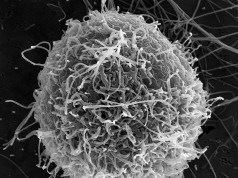By, Robert A. Wascher, MD, FACS
Updated: 05/30/2010
The information in this column is intended for informational purposes only, and does not constitute medical advice or recommendations by the author. Please consult with your physician before making any lifestyle or medication changes, or if you have any other concerns regarding your health.
Welcome to Weekly Health Update
“A critical weekly review of important new research findings for health-conscious readers
I would like to take the occasion of this Memorial Day weekend to sincerely thank the millions of active duty service members, veterans, and families of The Fallen, for their selfless and courageous service to our nation, and for their many sacrifices.
Robert A. Wascher, MD, FACS
Colonel, US Army, Retired
MEDICAL RESEARCH STUDIES & “SPIN
2010 marks the fourth year that I have been writing this column, and despite the diverse range of health-related topics that I’ve reviewed over the years, each weekly column has been written with the same basic goal in mind: to bring cutting-edge health research findings to the public in as objective and honest a manner as possible.
We would all like to believe that research studies that have been successfully published in highly regarded medical and scientific journals have been so thoroughly vetted prior to publication, that we can readily accept their findings and conclusions. However, as with any other endeavor that is undertaken by humans, flaws in research hypotheses or methodologies, errors in the actual conduct of research, and erroneous conclusions drawn from the resulting research data can all lead research scientists and clinicians astray. It is because of these inherent weaknesses associated with research that standardized checks and balances are supposed to be observed in the conduct of all research studies, in an effort to reduce the risk of bias and error in the conduct of research, and in the analysis of the data that they generate.
Despite all of the safeguards that are supposed to be observed while conducting research, and with research studies involving human subjects in particular, bias and error cannot be completely eliminated in every case, and this reality must be accepted. However, a more worrisome cause of erroneous conclusions in health-related research has been of growing concern to medical journal editors and medical ethicists, lately. While many clinical research studies produce important new findings that improve our understanding of the diagnosis and treatment of human disease, many other studies result in non-significant findings that do not really advance our understanding in any meaningful way. In view of the enormous pressure upon research scientists and clinicians to publish clinically meaningful and statistically significant research findings, it is probably not too surprising to learn that some researchers can succumb to the pressure of “fudging their conclusions when their research data fails to yield any clinically (or statistically) significant findings. Although the overly optimistic interpretation of research results by researchers is a well-known phenomenon, the extent to which this routinely occurs has been unclear. Now, a newly published study in the Journal of the American Medical Association reveals the apparent extent to which this disturbing trend contaminates the published findings of clinical research studies.
In this study of “researcher spin, the authors analyzed 72 prospective randomized clinical research trials, out of a total of 616 randomized controlled research study papers published in peer-reviewed medical journals in December of 2006. These 72 studies were selected because their treatment findings failed to reach scientifically accepted levels of statistical significance (which is usually defined as a less than 5 percent probability of the observed outcome occurring by chance).
The results of this analytic study are disturbing, to say the least:
In 18 percent of cases, the authors of these “negative studies chose a title for their study that clearly implied statistically or clinically significant results, despite the lack of significant primary research findings.
Within the abstract section (a brief summary of the entire study), 38 percent of the authors either exaggerated or minimized their results in such a way as to imply that their results were actually significant. An incredible 58 percent of authors also “spun the conclusions in their abstracts to suggest clinically meaningful outcomes that were not supported by their own published research data.
Within the main body of these 72 research papers, additional “spin was identified in 29 percent of the Results sections, 43 percent of the Discussion sections, and 50 percent of the Conclusions sections!
Among these 72 research papers, more than 40 percent of the authors engaged in “spin in at least 2 sections of the main body of their research papers.
The findings of this study, that research authors are routinely exaggerating or otherwise embellishing their research outcomes, are not surprising to me, as a former cancer research scientist, nor would they be surprising to most other research scientists. However, the sheer scale of “spin on the part of research scientists, as revealed by this study, is a real eye-opener. Despite all of the safeguards that have been enacted, over the past 30 to 40 years, to promote objective and honest research, to think that at least half of all authors are routinely engaging in “spinning their nonsignificant research results, in an intentional effort to imply that their findings are significant, is disturbing (to say the least).
These highly disappointing findings also further validate the primary purpose of this global health research update column: to objectively and critically present cutting edge clinical and laboratory health-research findings to the hundreds of thousands of my regular readers around the world. While this method of health journalism may not be as sensational or as sexy as that presented by the non-physician and non-scientist columnists in the mainstream media, it is, nonetheless, a more honest and informative approach than that used by traditional media companies seeking to lure new readers with their hyperbole and their breathless (but superficial) reporting.
For other columns related to this topic, please see:
Publication & Citation Bias in Favor of Industry-Funded Research?
Drug Company Marketing & Physician Prescribing Bias
To read more objective, in-depth, and factual research-based information related to cancer prevention, look for the publication of my new landmark book, “A Cancer Prevention Guide for the Human Race, in the summer of this year.
I and the staff of Weekly Health Update would again like to take this opportunity to thank the more than 100,000 new and returning readers who visit our premier global health information website every month. As always, we enjoy receiving your stimulating feedback and questions, and I will continue to try and personally answer as many of your inquiries as I possibly can.
Disclaimer: As always, my advice to readers is to seek the advice of your physician before making any significant changes in medications, diet, or level of physical activity
Dr. Wascher is an oncologic surgeon, professor of surgery, cancer researcher, oncology consultant, and a widely published author
For a different perspective on Dr. Wascher, please click on the following YouTube link:
https://youtube.com/watch?v=7-Tdv7XW0qg
(Anticipated Publication Date: Summer of 2010)

Send your feedback to Dr. Wascher at:
Dr. Wascher’s Biography
Links to Other Health & Wellness Sites
Copyright 2007 – 2010
Robert A. Wascher, MD, FACS
All rights reserved
Dr. Wascher’s Archives:
5-23-2010: Soy & Curcumin Reduce Prostate-Specific Antigen (PSA)
5-16-2010: Coffee & the Risk of Death from Heart Disease & Cancer
5-9-2010: Soy Foods & Stomach Cancer Risk
5-2-2010: Chemotherapy for Breast Cancer & Memory Loss
4-25-2010: Smoking, Teenagers & Tobacco Company Advertising
4-18-2010: Coffee Improves HDL Cholesterol Levels
4-11-2010: Cruciferous Vegetables, Soy & Breast Cancer Risk
4-4-2010: Avodart (Dutasteride) & Prostate Cancer Prevention
3-28-2010: Aspirin & Breast Cancer Survival
3-21-2010: Obesity, Alcohol & Liver Disease
3-14-2010: Nuts, Diet & Obesity
3-7-2010: Walnuts, Cholesterol, LDL & Triglycerides
2-28-2010: Soy Isoflavones & Recurrent Prostate Cancer
2-21-2010: Testosterone Supplements in Frail Elderly Men
2-14-2010: Pancreatic Cancer Risk, Sodas & Juice
2-7-2010: Vitamin D, Cardiovascular Disease & Death
1-31-2010: Concord Grape Juice Improves Memory
1-24-2010: Mozart, Music, Babies & Health
1-17-2010: Breast Cancer, Physical Therapy & Lymphedema
1-10-2010: Prevention of Surgical Site Infections (SSIs) after Surgery
1-3-2010: Ginkgo Biloba, Memory & Cognitive Health
12-20-2009: CT Scans & Cancer Risk
12-13-2009: Soy Isoflavones Decrease Breast Cancer Recurrence Risk
12-6-2009: Salt (Sodium) Intake, Stroke & Cardiovascular Disease
11-29-2009: Exercise & Prostate Cancer Risk
11-22-2009: Genistein (Soy Isoflavone) & Prostate Cancer
11-15-2009: Breast Cancer Treatment & Chronic Pain
1-8-2009: Vitamin D & Breast Cancer Risk
11-1-2009: Exercise & Prostate Cancer Risk
10-25-2009: HPV Virus & Risk of Breast Cancer
10-18-2009: Post-Cholecystectomy Syndrome (Symptoms after Gallbladder Surgery)
10-11-2009: Vitamin D & Falls in the Elderly
10-4-2009: Surgery, NSQIP, Complications & Death
9-27-2009 Stress, Heart Disease, Exercise & Death
9-20-2009: Vitamin D & Colorectal Cancer Survival
9-13-2009: H1N1 Swine Flu Update
9-7-2009: Green Tea, Aging & Lifespan
8-30-2009: Irritable Bowel Syndrome (IBS), Diet & Fiber
8-23-2009: Update on Prostate Cancer and Cryotherapy
8-16-2009: Exercise Improves Lymphedema Symptoms in Breast Cancer Survivors
8-9-2009: Breast Cancer Recurrence, Death & Vitamin D
8-2-2009: Honesty, Dishonesty & Brain Function
7-26-2009: Coronary Artery CT Scans & Cancer Risk
7-19-2009: Hormone Replacement Therapy (HRT) & Ovarian Cancer
7-12-2009: Breast Cancer & Metformin (Glucophage)
7-5-2009: Prostate Cancer & Green Tea
6-28-2009: Air Pollution & the Risk of Deep Venous Thrombosis (DVT)
6-21-2009: Red Yeast Rice, Statins & Cholesterol
6-14-2009: Bone Marrow Stem Cell Transplant & Congestive Heart Failure (CHF)
6-7-2009: Diet, Soy & Breast Cancer Risk
5-31-2009: Diet and Prostate Cancer Risk
5-24-2009: Diabetes, Glucose Control & Death
5-17-2009: Drug Company Marketing & Physician Prescribing Bias
5-10-2009: Hemorrhoids & Surgery
5-3-2009: Statin Drugs & Blood Clots (Thromboembolism)
4-26-2009: Are We Really Losing the War on Cancer?
4-19-2009: Exercise in Middle Age & Risk of Death
4-12-2009: Can Chronic Stress Harm Your Heart?
4-5-2009: Does PSA Testing for Prostate Cancer Save Lives?
3-15-2009: Depression, Stress, Anger & Heart Disease
3-8-2009: Coronary Artery Disease: CABG vs. Stents?; Swimming Lessons & Drowning Risk in Children
3-1-2009: Aspirin & Colorectal Cancer Prevention; Fish Oil & Respiratory Infections in Children
2-22-2009: Health Differences Between Americans & Europeans; Lycopene & Prostate Cancer
2-15-2009: Statin Drugs & Death Rates; Physical Activity, Breast Cancer & Sex Hormones
2-8-2009: Hormone Replacement Therapy (HRT) & Breast Cancer; Stool DNA Testing & Cancer of the Colon & Rectum
1-25-2009: Prostate Cancer, Fatigue & Exercise; Does your Surgeon “Warm-up Before Surgery?
1-18-2009: Cancer and Vitamins; Teenagers, MySpace and Risky Behaviors
1-11-2009: Exercise Reverses Some Effects of Fatty Meals; Vitamin C and Blood Pressure
12-28-2008: Stress & Your Risk of Heart Attack; Vitamin D & the Prevention of Colon & Rectal Polyps
12-21-2008: Breast Cancer Incidence & Hormone Replacement Therapy; Circumcision & the Risk of HPV & HIV Infection
12-14-2008: Vitamin E, Vitamin C and Selenium Do Not Prevent Cancer; Postscript: A Possible Cure for Down’s Syndrome
12-7-2008: Generic vs. Brand-Name Drugs, Stress & Breast Cancer Survival
11-30-2008: A Possible Cure for Down’s Syndrome?; Smoking & Cognitive Decline; Calcium & Vitamin D & Breast Cancer Risk
11-23-2008: Breast Cancer & Fish Oil; Lymphedema after Breast Cancer Treatment; Vasectomy & Prostate Cancer Risk
11-9-2008: Statins Cut Heart Attack Risk Even with Normal Cholesterol Levels; Statins & PSA Level
11-2-2008: Radiation Treatment of Prostate Cancer & Second Cancers; Sexual Content on TV & Teen Pregnancy Risk
10-26-2008: Smoking & Quality of Life
10-19-2008: Agent Orange & Prostate Cancer
10-12-2008: Pomegranate Juice & Prostate Cancer
10-5-2008: Central Obesity & Dementia; Diet, Vitamin D, Calcium, & Colon Cancer
9-28-2008: Publication & Citation Bias in Favor of Industry-Funded Research?
9-21-2008: Does Tylenol® (Acetaminophen) Cause Asthma?
9-14-208: Arthroscopic Knee Surgery- No Better than Placebo?; A Healthy Lifestyle Prevents Stroke
8-23-2008: Alcohol Abuse Before & After Military Deployment; Running & Age; Running & Your Testicles
2-23-2008: Universal Healthcare Insurance Study; Glucosamine & Arthritis
2-3-2008: Vitamin D & Cardiovascular Health; Vitamin D & Breast Cancer; Green Tea & Colorectal Cancer
1-12-2008: Statins, Diabetes & Stroke and Obesity; GERD & Esophageal Cancer
12-31-2007: Minority Women, Hormone Replacement Therapy & Breast Cancer; Does Health Insurance Improve Health?






